
Life can be stressful. Every day, situations cause fear, anger, sadness, excitement, and anxiety. Many individuals who experience stressful circumstances drink alcohol to help them cope with the stress. However, alcohol impacts the physiological balance of a person’s body, which can lead to more stress.




Researchers have found drinking alcohol takes a physiological and psychological toll on a person’s body and can compound the impact that stress has on a person.¹
Consuming alcohol may seem like it provides some short-term relief, but when there are long-term stressful events, drinking alcohol heavily can lead to psychological and medical issues and increase a person’s risk of developing an alcohol use disorder.²
Stress is defined physiologically as anything challenging an individual’s body to function normally. Exposure to intense temperatures, injuries, or illness, can cause the body stress. Fear, depression, grieving, and even sexual activity can result in psychological stress.
A person’s body has developed a substantial and complicated process of adapting to dangerous circumstances created by stress to maintain a physiological balance (referred to as homeostasis).
When an individual’s body is stressed or even perceives stress, it mobilizes several behavioral and physiological changes through the endocrine and nervous systems to maintain homeostasis and deal with stress.
When a person’s body experiences stress, it quickly turns up its normal metabolic processes, kicking into high gear, relying on the complex hypothalamic-pituitary-adrenal (HPA) axis system to switch the hormonal messenger levels throughout the body.³
Specific organs are targeted by this HPA axis system to prepare an individual’s body to activate its fight-or-flight response (the body will either fight the stressor or flee from it).
The cortisol hormone plays an essential role in how the body responds to stress by raising energy through increased glucose levels and increasing the supply of nutrients through mobilizing protein and fat metabolism.⁴
A healthy body responds to stress by increasing cortisol levels and then rapidly decreasing these levels once the stress or threat is over.
Resilience is a person’s ability to cope with stress. A resilient person can adapt to the physiological and psychological factors that come into play in their body’s stress response.
Research shows that individuals with an optimistic, positive outlook and good coping and problem-solving skills tend to handle stress more effectively.⁵
There are different ways that alcohol and stress mix. Some include:
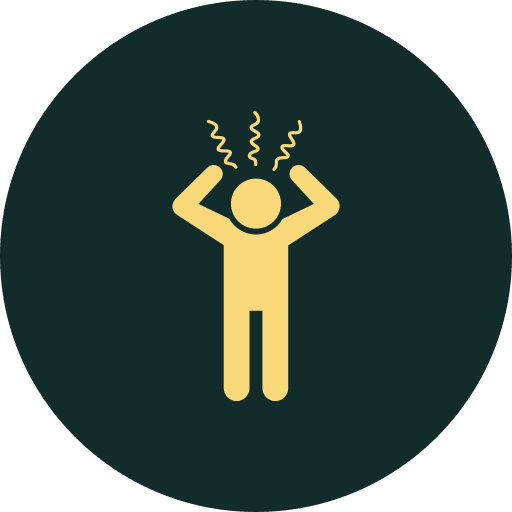
Individuals who exhibit negative emotions, impulsivity, anxiety traits, and novelty seeking, who also were linked to a higher risk for substance use disorders, have challenges coping with stress. Those who don’t deal with stress well and are therefore at a higher risk for ending up with an alcohol use disorder include⁶:
These are just a few potential risks. Various others can put an individual at risk of developing an alcohol use disorder.
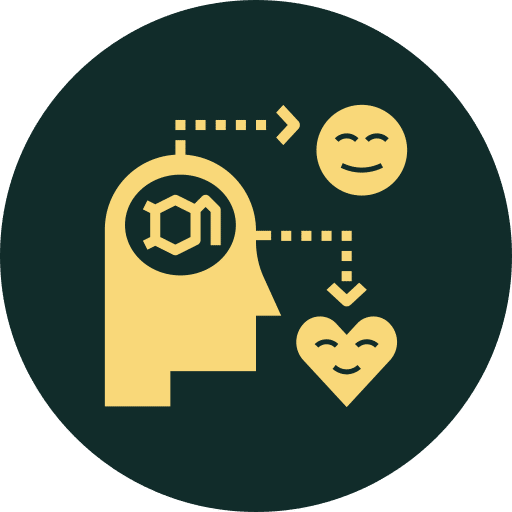
Along with being linked with unpleasant or negative feelings, cortisol also engages with the “pleasure” or reward systems of the brain. Researchers believe this could add to alcohol’s reinforcing effects, motivating the individual to drink more alcohol to achieve the same impact.
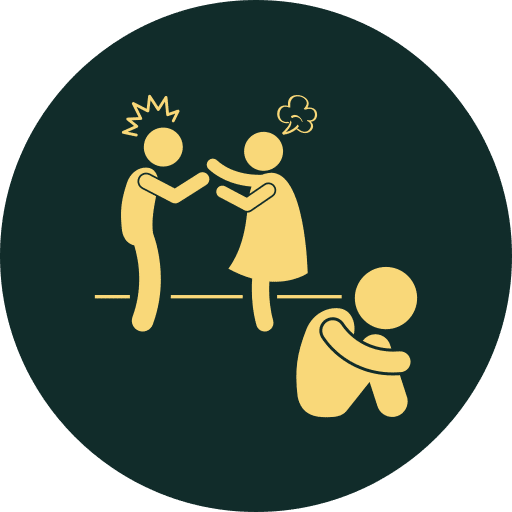
Among the different environmental factors that affect individuals, external stress is one of the most potent. While it’s believed that stress increases an individual’s drinking, it is appreciated that stress is multi-dimensional.
For instance:
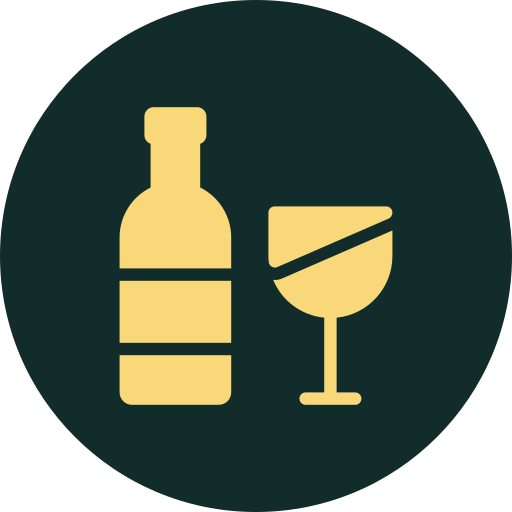
Along with the dynamics of when an individual experiences stress, the individual’s genetic constitution, the type of stressor, and the stage of alcohol exposure can also influence the stress response. Stress can affect a social drinker differently than an abstinent alcoholic dealing with relapse. Factors like these are now appreciated better in the interaction between alcohol use disorders and stress.
Stress can continue having an effect even after a person ceases drinking.⁷ The impact of stress doesn’t top once an individual stops drinking. Newly sober individuals frequently relapse to drinking to ease withdrawal symptoms, such as:
Many withdrawal symptoms can be traced to the system at the central part of the stress response, the HPA axis system.
Alcohol and stress hormones come into play too. An individual’s brain chemistry can become altered by long-term, heavy drinking and re-set what is “normal.” It leads to a higher amount of adrenocorticotropic and cortisol hormones being released.
When there’s a shift in this hormonal balance, it affects the way an individual’s body perceives and responds to stress. For instance, an individual with a history of long-term, heavy drinking might experience higher anxiety levels when faced with stressful circumstances than an individual who drank only moderately or never drank at all.
Some individuals may attempt to cope with stress by drinking alcohol. Drinking may cause temporary positive feelings and relaxation. Still, problems arise when there is ongoing stress, and the person continues trying to cope with the effects of stress by drinking alcohol. Instead of alcohol calming the drinker’s nerves, heavy, long-term drinking can work against them, leading to psychological and medical issues and increasing their risk of alcohol dependence.
While the occasional drink isn’t harmful, experts say that while it may seem like drinking alcohol to lift a person’s mood might seem like a good idea, the opposite occurs. Plus, doing so can have multiple effects.
An individual’s brain relies on a sensitive balance of processes and chemicals. Because alcohol is a depressant, it negatively disrupts this balance. The more alcohol a person drinks, the greater the impact it will have on their brain function — and possibly — their behavioral health. No matter what mood the person is in before they start to drink, the effects of alcohol on the brain can cause feelings of:
Ultimately, alcohol can disrupt the individual’s delicate balance of processes and chemicals in their brain, affecting their feelings, actions, and thoughts and sometimes their long-term behavioral health.⁸

Because of economic and social unrest in the world these days, many individuals’ anxiety and stress levels are much higher than usual. Even individuals who aren’t predisposed to depression and anxiety are now experiencing this as well.
Drinking a glass of scotch or a glass of wine will indeed offer individuals some relaxation up front, release endorphins and boost their serotonin levels. But, it’s just a short-term fix that contributes to long-term issues.
If a person relies on alcohol for pleasure and happiness, even to numb stress, that could lead to substantial issues. They’re not learning how to deal with things as they are at that moment.
They’re not learning how to cope in a healthy manner. Instead, if they increase their dependence on alcohol to help them handle their stress, it can lead to the worsening of anxiety and depression. Increased levels of alcohol can also cause the individual to ruminate on negative things — dreadful thoughts that can heighten their emotional state.
Even if the individual is new to drinking, increasing their alcohol intake when experiencing stress can still cause long-term alcohol dependence. They can experience an alcohol addiction and not even realize it.
All they think about is drinking alcohol. They don’t want to go out or do anything but get their hands on their next drink. To them, it’s instant gratification. They don’t have to cope with their stress or feel any feelings. All they have to do is just sit there and drink.
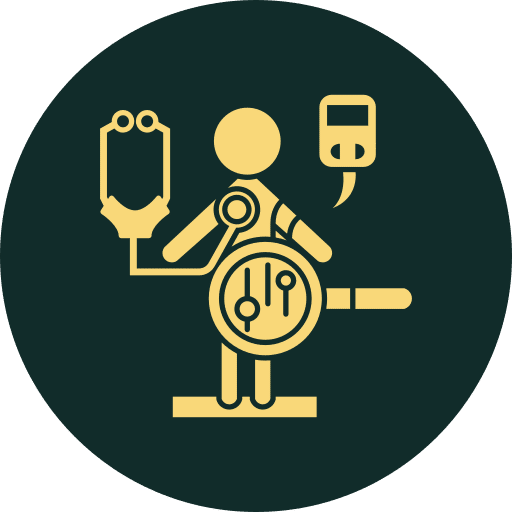
Increasing amounts of alcohol that an individual drinks, especially during times of stress, can also have several physical consequences. It’s not recommended as a way to cope with stressful times.
While it’s difficult to determine the exact effects of short-term alcohol dependency, such as drinking to cope with stressful situations, it can still do harm. Not to mention, alcohol is a depressant, so it’s a downer and doesn’t help with promoting energy.
If a person has just recently increased their alcohol intake, it’s not likely that it will cause any damage to the liver in the short term. However, it can predispose a person to develop alcohol abuse and other bad habits that can lead to alcohol use-related chronic liver disease in the long term.
Drinking alcohol, along with not eating well during the times that alcohol intake is increased, can suppress a person’s immune system, so they’ll have a more difficult time fighting off infections.
And they don’t want to depend on alcohol to help them sleep better. Alcohol disrupts a person’s sleep cycle and can cause more fatigue. This is because when a person uses alcohol as a sleep aid, it decreases their time in the rapid eye movement (REM) sleep stage.
Instead, they may fall asleep quicker and sleep more deeply for the first couple of hours, but they’re not likely to reach the truly restorative REM sleep cycle stage. This can make them feel less rested and more tired the next day.
On top of that, it’s also a definite way to pack on those extra calories. If a person is trying to improve their mood and feel better, then the last thing they want to do is take in additional, meaningless calories. These extra calories that come from alcohol can lead to weight gain, and this can lead to a poor self-image or, ultimately, more stress.
Stress and alcohol frequently seem to go hand in hand. It’s typical for people to kick back a stressful day with a beer or glass of wine to relax them. But, alcohol can cause a person’s stress levels to increase.
Various life circumstances can cause stress. However, all things that can lead to stress can be categorized into the following four categories that can increase an individual’s risk of alcohol use.
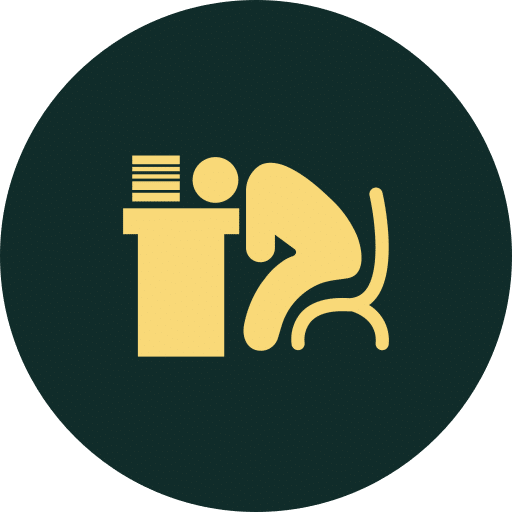
These are all too familiar. This is the stress individuals experience at work, when they’re having money problems, or when their car breaks down.
General life stressors are things that occur to people every day that lead to stress. Research shows that alcohol use for coping with stress due to general life stressors increases a person’s alcohol disorder risk.⁹

When people think of catastrophic events, they often think of things like a tornado or hurricane. But devastating events aren’t always natural disasters. They can also be man-made.
For instance, a bombing or event like 9/11 would be called a man-made catastrophic event. Essentially, catastrophic events are sudden events where destruction and change occur.
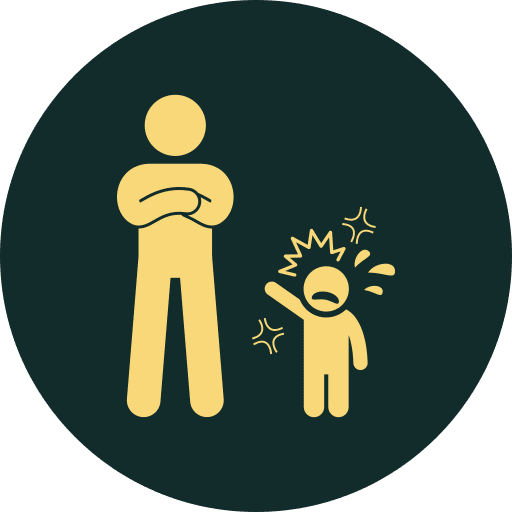
Childhood abuse can affect a person well into adulthood. Emotional or neglect, physical, or sexual abuse that happens during childhood can lead to stress in the individual’s adolescent and adult years.
Additionally, adolescents and adults who experienced childhood abuse have a higher risk of abusing alcohol, particularly if they grew up in a home with an alcoholic caregiver.
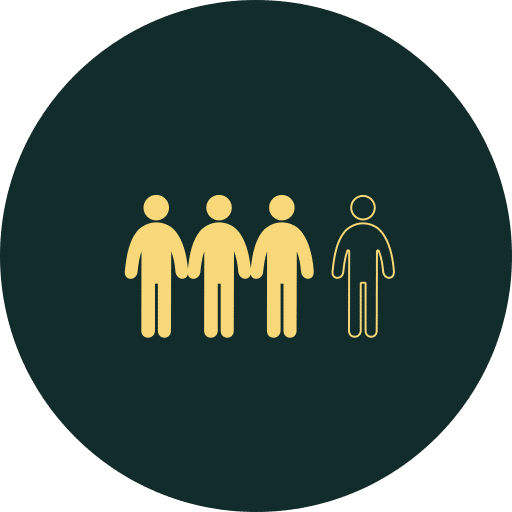
This type of stress has been front and center over previous years. These types of stressors can encompass an extensive range. However, some may include being a hate crime victim or being overlooked for a promotion. Both physical and emotional factors can cause this type of stress.
Research shows that objective indicators and perceptions of discrimination are linked with alcohol use disorders and alcohol abuse. This is true for ethnic and racial minorities and sexual minorities.
During stressful times, individuals need to find healthy methods to cope and process pent-up emotions. For instance, individuals can stay in touch with family and friends either over online platforms like social media or video or face-to-face.
Another healthy method to cope better is to get outdoors. Individuals can sit in their gardens or backyards or relax on their porches. With the different changes in weather, getting outside is a good idea since it gives individuals a change of scenery and provides them with fresh air. They’re outside their homes, engaging in something calming and pleasurable.
There are also various resources that individuals can tap into if they’re struggling with stress and alcohol abuse or addiction. Individuals need to realize that even if they’re experiencing increased stress, feeling isolated, or dealing with depression or anxiety, there are resources available to them that they can tap into for help. These days, many treatment programs provide online solutions.
For example, individuals can reach out to their healthcare providers or get connected with organizations like Alcoholics Anonymous. The point is that they understand they always have a resource to reach out to and find the help and support they need.
Sometimes, stress can become too difficult to cope with, and individuals may find it hard to handle it independently. Seeking professional help provides them with someone they can talk to and a way to address other problems they’re going through. In some cases, stress can be far more than simply stress. Seeking professional help will allow people dealing with stress and alcohol consumption to have a professional in their life who can help identify whether or not there are more than just day-to-day life stressors weighing them down.
Suppose stress and alcohol are becoming a big problem in your life, and you’re using alcohol as a crutch to deal with your stress. In that case, you may need help not just in finding healthy coping approaches but also in addressing a potential alcohol addiction.
Your first step is to ask for help and find treatment. At New Method Wellness, our treatment programs can help you tackle your addiction and any possible underlying behavioral health condition. We provide our clients with a serene, tranquil, and relaxing environment that allows them to focus in total comfort.
Contact us today to learn more about our treatment programs and schedule your consultation.
https://www.ncbi.nlm.nih.gov/pmc/articles/PMC3860385/
https://www.ncbi.nlm.nih.gov/pmc/articles/PMC3307043/
Authors and reviewers: Kylie Garber Bezdek. Eva H. Telzer. Published: December 20, 2017
https://kids.frontiersin.org/articles/10.3389/frym.2017.00071
https://www.excli.de/vol16/Sahebkar_Panahi_21072017_proof.pdf
https://www.frontiersin.org/articles/10.3389/fnins.2018.00303/full
https://pubs.niaaa.nih.gov/publications/AA85/AA85.htm
https://www.ncbi.nlm.nih.gov/pmc/articles/PMC5272862/
From all of us at New Method Wellness co-occurring treatment center, we wish you peace and serenity in knowing that you or your loved one will get the necessary help.
ACCREDITED BY:
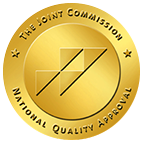
New Method Wellness
We firmly believe that the internet should be available and accessible to anyone, and are committed to providing a website that is accessible to the widest possible audience, regardless of circumstance and ability.
To fulfill this, we aim to adhere as strictly as possible to the World Wide Web Consortium’s (W3C) Web Content Accessibility Guidelines 2.1 (WCAG 2.1) at the AA level. These guidelines explain how to make web content accessible to people with a wide array of disabilities. Complying with those guidelines helps us ensure that the website is accessible to all people: blind people, people with motor impairments, visual impairment, cognitive disabilities, and more.
This website utilizes various technologies that are meant to make it as accessible as possible at all times. We utilize an accessibility interface that allows persons with specific disabilities to adjust the website’s UI (user interface) and design it to their personal needs.
Additionally, the website utilizes an AI-based application that runs in the background and optimizes its accessibility level constantly. This application remediates the website’s HTML, adapts Its functionality and behavior for screen-readers used by the blind users, and for keyboard functions used by individuals with motor impairments.
If you’ve found a malfunction or have ideas for improvement, we’ll be happy to hear from you. You can reach out to the website’s operators by using the following email juanita@newmethodwellness.com
Our website implements the ARIA attributes (Accessible Rich Internet Applications) technique, alongside various different behavioral changes, to ensure blind users visiting with screen-readers are able to read, comprehend, and enjoy the website’s functions. As soon as a user with a screen-reader enters your site, they immediately receive a prompt to enter the Screen-Reader Profile so they can browse and operate your site effectively. Here’s how our website covers some of the most important screen-reader requirements, alongside console screenshots of code examples:
Screen-reader optimization: we run a background process that learns the website’s components from top to bottom, to ensure ongoing compliance even when updating the website. In this process, we provide screen-readers with meaningful data using the ARIA set of attributes. For example, we provide accurate form labels; descriptions for actionable icons (social media icons, search icons, cart icons, etc.); validation guidance for form inputs; element roles such as buttons, menus, modal dialogues (popups), and others. Additionally, the background process scans all of the website’s images and provides an accurate and meaningful image-object-recognition-based description as an ALT (alternate text) tag for images that are not described. It will also extract texts that are embedded within the image, using an OCR (optical character recognition) technology. To turn on screen-reader adjustments at any time, users need only to press the Alt+1 keyboard combination. Screen-reader users also get automatic announcements to turn the Screen-reader mode on as soon as they enter the website.
These adjustments are compatible with all popular screen readers, including JAWS and NVDA.
Keyboard navigation optimization: The background process also adjusts the website’s HTML, and adds various behaviors using JavaScript code to make the website operable by the keyboard. This includes the ability to navigate the website using the Tab and Shift+Tab keys, operate dropdowns with the arrow keys, close them with Esc, trigger buttons and links using the Enter key, navigate between radio and checkbox elements using the arrow keys, and fill them in with the Spacebar or Enter key.Additionally, keyboard users will find quick-navigation and content-skip menus, available at any time by clicking Alt+1, or as the first elements of the site while navigating with the keyboard. The background process also handles triggered popups by moving the keyboard focus towards them as soon as they appear, and not allow the focus drift outside of it.
Users can also use shortcuts such as “M” (menus), “H” (headings), “F” (forms), “B” (buttons), and “G” (graphics) to jump to specific elements.
We aim to support the widest array of browsers and assistive technologies as possible, so our users can choose the best fitting tools for them, with as few limitations as possible. Therefore, we have worked very hard to be able to support all major systems that comprise over 95% of the user market share including Google Chrome, Mozilla Firefox, Apple Safari, Opera and Microsoft Edge, JAWS and NVDA (screen readers), both for Windows and for MAC users.
Despite our very best efforts to allow anybody to adjust the website to their needs, there may still be pages or sections that are not fully accessible, are in the process of becoming accessible, or are lacking an adequate technological solution to make them accessible. Still, we are continually improving our accessibility, adding, updating and improving its options and features, and developing and adopting new technologies. All this is meant to reach the optimal level of accessibility, following technological advancements. For any assistance, please reach out to juanita@newmethodwellness.com